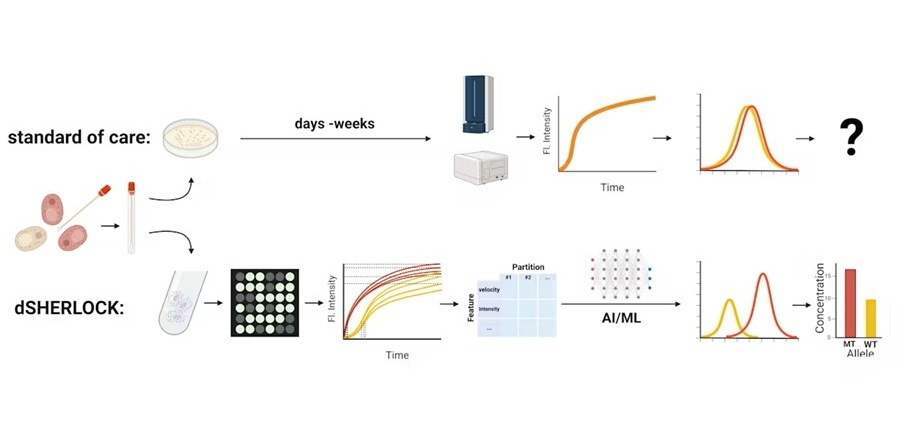Simplified Methodology Assists Molecular Analysis of Cholera
By LabMedica International staff writers
Posted on 20 Jan 2016
Simplified sample preservation methods have been evaluated for molecular characterization using multi-locus variable-number tandem-repeat analysis (MLVA) for differentiation of Vibrio cholerae genotypes.Posted on 20 Jan 2016
V. cholerae is endemic in South Asia and Africa where outbreaks of cholera occur widely and are particularly associated with poverty and poor sanitation and knowledge of the genetic diversity of toxigenic V. cholerae isolates, particularly in Africa, remains scarce.

Image: Crystal VC Dipstick: rapid immunochromatographic test for detection of Vibrio cholerae in stool (Photo courtesy of Span Diagnostics).
Scientists at the Johns Hopkins University Bloomberg School of Public Health (Baltimore, MD, USA) and their colleagues collected stool specimens from two geographically distinct outbreaks in the Far North of Cameroon (FNC) in June 2014 and October 2014. Forty-seven V. cholerae isolates and 18 clinical stool specimens after enrichment in broth, from the cholera outbreaks in Cameroon, were preserved on Whatman filter paper for DNA extraction. In addition, a convenience sample of 14 isolates from the Philippines and eight from Mozambique were analyzed.
Cameroonian fecal specimens were screened for V. cholerae O1 and O139 using an enriched dipstick method (Crystal VC, Span Diagnostics; Udhna, Surat, India; www.span.co.in). To evaluate the use of simplified specimen preservation and sample shipping methods, the alkaline peptone water (APW) enriched specimen for each stool was also preserved on Whatman 903 filter paper (GE Healthcare Ltd.; Cardiff, UK) to be tested for V. cholerae using molecular methods. One to two drops of the enriched specimen was aliquoted onto the Whatman filter paper and allowed to air dry; filter papers were stored in individual plastic bags at room temperature until they were sent for DNA extraction and polymerase chain reaction (PCR) processing.
All 87 DNAs were successfully analyzed including 16 paired samples, one a cultured isolate and the other the enriched specimen from which the isolate was collected. Genotypic results were identical between 15 enriched specimens and their culture isolates and the other pair differed at single locus. Two closely related, but distinct clonal complexes were identified among the Cameroonian specimens from 2014. When this simplified DNA preservation method was used, the team was able to molecularly characterize isolates in an on-going outbreak.
The authors concluded that collecting V. cholerae using simplified laboratory methods in remote and low-resource settings allows for subsequent advanced molecular characterization of V. cholerae O1. These simplified DNA preservation methods identify V. cholerae and make possible timely information regarding the genetic diversity of V. cholerae. The study was published on January 6, 2016, in the journal Public Library of Science Neglected Tropical Diseases.
Related Links:
Johns Hopkins University Bloomberg School of Public Health
Span Diagnostics
GE Healthcare Ltd.













